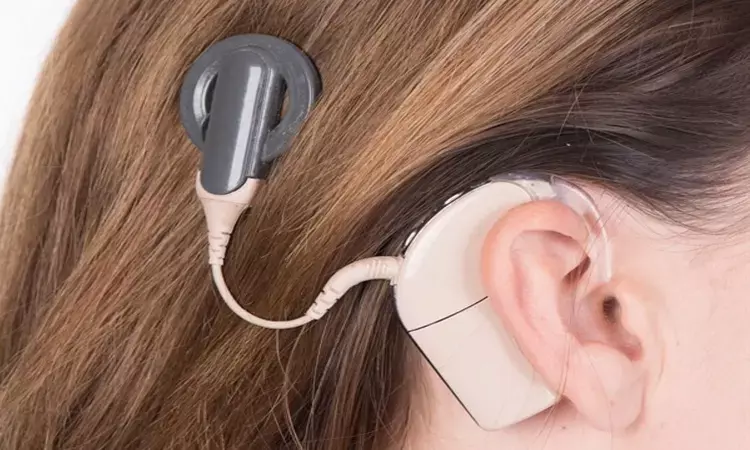- Home
- Medical news & Guidelines
- Anesthesiology
- Cardiology and CTVS
- Critical Care
- Dentistry
- Dermatology
- Diabetes and Endocrinology
- ENT
- Gastroenterology
- Medicine
- Nephrology
- Neurology
- Obstretics-Gynaecology
- Oncology
- Ophthalmology
- Orthopaedics
- Pediatrics-Neonatology
- Psychiatry
- Pulmonology
- Radiology
- Surgery
- Urology
- Laboratory Medicine
- Diet
- Nursing
- Paramedical
- Physiotherapy
- Health news
- Fact Check
- Bone Health Fact Check
- Brain Health Fact Check
- Cancer Related Fact Check
- Child Care Fact Check
- Dental and oral health fact check
- Diabetes and metabolic health fact check
- Diet and Nutrition Fact Check
- Eye and ENT Care Fact Check
- Fitness fact check
- Gut health fact check
- Heart health fact check
- Kidney health fact check
- Medical education fact check
- Men's health fact check
- Respiratory fact check
- Skin and hair care fact check
- Vaccine and Immunization fact check
- Women's health fact check
- AYUSH
- State News
- Andaman and Nicobar Islands
- Andhra Pradesh
- Arunachal Pradesh
- Assam
- Bihar
- Chandigarh
- Chattisgarh
- Dadra and Nagar Haveli
- Daman and Diu
- Delhi
- Goa
- Gujarat
- Haryana
- Himachal Pradesh
- Jammu & Kashmir
- Jharkhand
- Karnataka
- Kerala
- Ladakh
- Lakshadweep
- Madhya Pradesh
- Maharashtra
- Manipur
- Meghalaya
- Mizoram
- Nagaland
- Odisha
- Puducherry
- Punjab
- Rajasthan
- Sikkim
- Tamil Nadu
- Telangana
- Tripura
- Uttar Pradesh
- Uttrakhand
- West Bengal
- Medical Education
- Industry
Cochlear implantation surgery better than endolymphatic sac surgery for vertigo control in Meniere's Disease

Medical researchers have made strides in enhancing the treatment of Meniere's Disease (MD), a debilitating condition characterized by vertigo, hearing loss, and tinnitus. The study published in European Archives of Oto-Rhino-Laryngology explored the manipulation of the perilymphatic system as a potential avenue for improving vertigo control. The primary focus of treating MD has traditionally been on reducing vertigo attacks and preserving sensory function.
The researchers found that cochlear implantation surgery was better than endolymphatic sac surgery regarding vertigo control, potentially contributed by the manipulation of both the endo- and perilymphatic system.
The study, conducted at a prestigious tertiary referral center, involved a retrospective analysis of data from 86 patients with MD. The patients were categorized into three groups based on their treatment methods: those who underwent endolymphatic sac surgery alone (ESS alone), those who received cochlear implantation alone (CIalone), and those who underwent a combination of endolymphatic sac surgery and cochlear implantation (ESS + CI).
Notably, the results of the study demonstrated significant improvements in vertigo control across all three treatment groups. However, the group that received cochlear implantation alone (CIalone) exhibited the most promising outcomes, achieving a vertigo control rate of 100%. In comparison, the vertigo control rates were 89.7% for the ESS + CI group and 66.0% for the ESSalone group.
The age distribution varied among the treatment groups, with the ESSalone group being notably younger at an average of 56.2 years. Furthermore, the prevalence of definitive MD differed among the groups, with 100% prevalence in the CIalone group, 79.3% in the ESS + CI group, and 59.6% in the ESSalone group.
These findings shed light on the potential benefits of manipulating both the endolymphatic and perilymphatic systems in treating MD. The role of endolymphatic sac surgery (ESS) in altering the epiphenomenon of endolymphatic hydrops, which is associated with MD, could have contributed to the improvements observed in vertigo control.
A larger sample size and rigorous follow-up data collection are necessary to comprehensively evaluate the clinical effectiveness of these innovative treatment approaches. With MD significantly affecting patients' quality of life, the study's outcomes offer hope for more effective and tailored interventions in the future.
Source:
Spiegel, J. L., Weiss, B. G., Mueller, J., Hempel, J.-M., Rader, T., Bertlich, M., Canis, M., & Ihler, F. (2023). Significance of endolymphatic sac surgery with and/or without simultaneous cochlea implant surgery in respect of vertigo control and speech perception in patients with Menière’s disease. In European Archives of Oto-Rhino-Laryngology. Springer Science and Business Media LLC. https://doi.org/10.1007/s00405-023-08122-6
Neuroscience Masters graduate
Jacinthlyn Sylvia, a Neuroscience Master's graduate from Chennai has worked extensively in deciphering the neurobiology of cognition and motor control in aging. She also has spread-out exposure to Neurosurgery from her Bachelor’s. She is currently involved in active Neuro-Oncology research. She is an upcoming neuroscientist with a fiery passion for writing. Her news cover at Medical Dialogues feature recent discoveries and updates from the healthcare and biomedical research fields. She can be reached at editorial@medicaldialogues.in
Dr Kamal Kant Kohli-MBBS, DTCD- a chest specialist with more than 30 years of practice and a flair for writing clinical articles, Dr Kamal Kant Kohli joined Medical Dialogues as a Chief Editor of Medical News. Besides writing articles, as an editor, he proofreads and verifies all the medical content published on Medical Dialogues including those coming from journals, studies,medical conferences,guidelines etc. Email: drkohli@medicaldialogues.in. Contact no. 011-43720751


